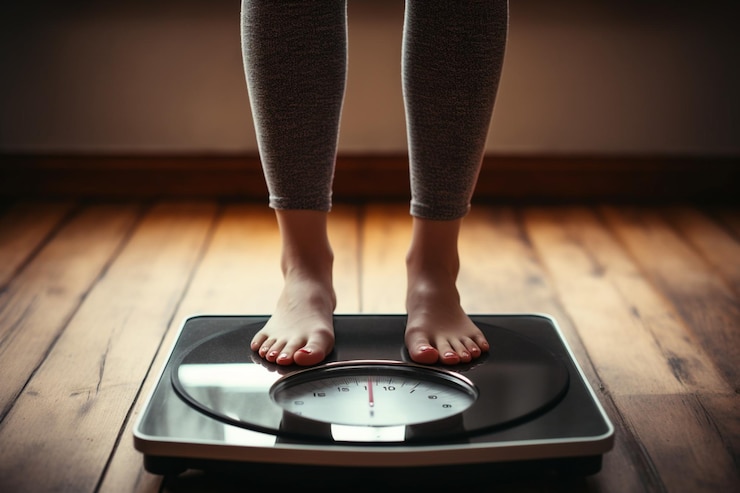 Schema + Rich Snippets – Dominate Search with Visual Results!
Schema + Rich Snippets – Dominate Search with Visual Results!
Do Feet Shrink After Weight Loss? Truth Explained
Written by Adarsh Mishra » Updated on: June 17th, 2025

Ever noticed your shoes feeling a bit looser after dropping some weight? You're not alone! Weight loss can indeed impact your feet, but it's not about shrinking bones.
Here, we explore the fascinating connection between weight and foot size, debunk some myths, and answer the burning question: do your feet actually get smaller when you lose weight?
The Bony Blueprint: Your Feet's Fixed Foundation
The foundation of your foot is made up of 26 bones, intricately connected by ligaments and tendons. This rigid framework determines your foot's basic length and width.
The good news? These bones don't magically shrink or expand with weight fluctuations. They're built to last a lifetime.
The Soft Stuff Matters: Fat Pads and Weight's Influence
While your bones are a fixed structure, your feet are cushioned by a layer of fat pads. These pads play a crucial role in shock absorption and weight distribution.
As you gain weight, these fat pads can accumulate, making your feet feel wider and sometimes even slightly longer.
Conversely, significant weight loss can lead to a reduction in these fat pads, potentially causing your feet to feel slimmer and your shoes a bit looser.
Beyond Fat: Inflammation and Swelling
Carrying excess weight puts a constant strain on your feet. This can lead to inflammation, a process that causes tissues to swell.
This swelling can further contribute to a perceived increase in foot size. So, when you lose weight, the reduction in inflammation can also contribute to a feeling of smaller feet.
The Shrinking Effect: How Much Weight Loss Makes a Difference?
So, will you definitively go down a shoe size after dropping a few pounds? The answer is: it depends. Here's a breakdown of what to expect:
Slight Weight Loss (5-10%): You might not notice a significant change in shoe size. However, your feet might feel less puffy and shoes might feel slightly more comfortable due to reduced pressure.
Moderate Weight Loss (10-20%): This range is where some people start experiencing a change in shoe size. Your feet might feel noticeably narrower, and your shoes might become a bit loose, particularly around the instep and toes.
Significant Weight Loss (20%+): With substantial weight loss, a change in shoe size (half size or even a full size) becomes more likely. The reduction in fat pads and inflammation becomes more pronounced.
It's Not Just About Size: The Benefits of Healthy Feet
While a smaller shoe size might be a welcome bonus, the real benefit of weight loss for your feet goes beyond vanity. Here's how shedding pounds can improve your foot health:
Reduced Stress on Joints: Less weight translates to less pressure on your ankles, knees, and hips, leading to improved joint health and potentially alleviating pain.
Improved Circulation: Excess weight can impede blood flow to the feet. Weight loss can improve circulation, promoting better foot health and wound healing.
Decreased Risk of Foot Problems: Obesity is a risk factor for various foot problems like plantar fasciitis, bunions, and hammertoes. Weight loss can help prevent or manage these conditions.
Finding the Perfect Fit: When to Re-measure Your Feet
If you've lost a significant amount of weight and your shoes feel loose or uncomfortable, it's time to re-measure your feet. This ensures you get proper-fitting shoes that provide optimal support and prevent injuries. Here are some additional tips:
Measure your feet at the end of the day: Feet tend to swell slightly throughout the day, so an evening measurement ensures the most accurate size.
Measure both feet: It's common for one foot to be slightly larger than the other. Choose the size based on the larger foot.
Get sized at a reputable shoe store: Knowledgeable staff can help you find the perfect fit based on your specific needs and foot shape.
Beyond Weight Loss: Other Factors Affecting Foot Size
While weight loss is a significant factor, other things can influence your foot size:
Age: Feet can slightly widen and lengthen as we age due to ligament laxity and changes in the fat pads.
Pregnancy: Hormonal changes during pregnancy can cause temporary swelling and even a slight increase in shoe size.
Certain Medical Conditions: Conditions like arthritis or fluid retention can affect foot size.
The Bottom Line: Weight Loss and Foot Health
Weight loss can indeed impact your feet, but it's not about shrinking bones. It's about reducing fat pads, inflammation, and overall stress on your feet. The result? Potentially smaller-feeling feet, improved circulation, and a decreased risk of foot problems.
Note: IndiBlogHub features both user-submitted and editorial content. We do not verify third-party contributions. Read our Disclaimer and Privacy Policyfor details.
Copyright © 2019-2025 IndiBlogHub.com. All rights reserved. Hosted on DigitalOcean for fast, reliable performance.
















